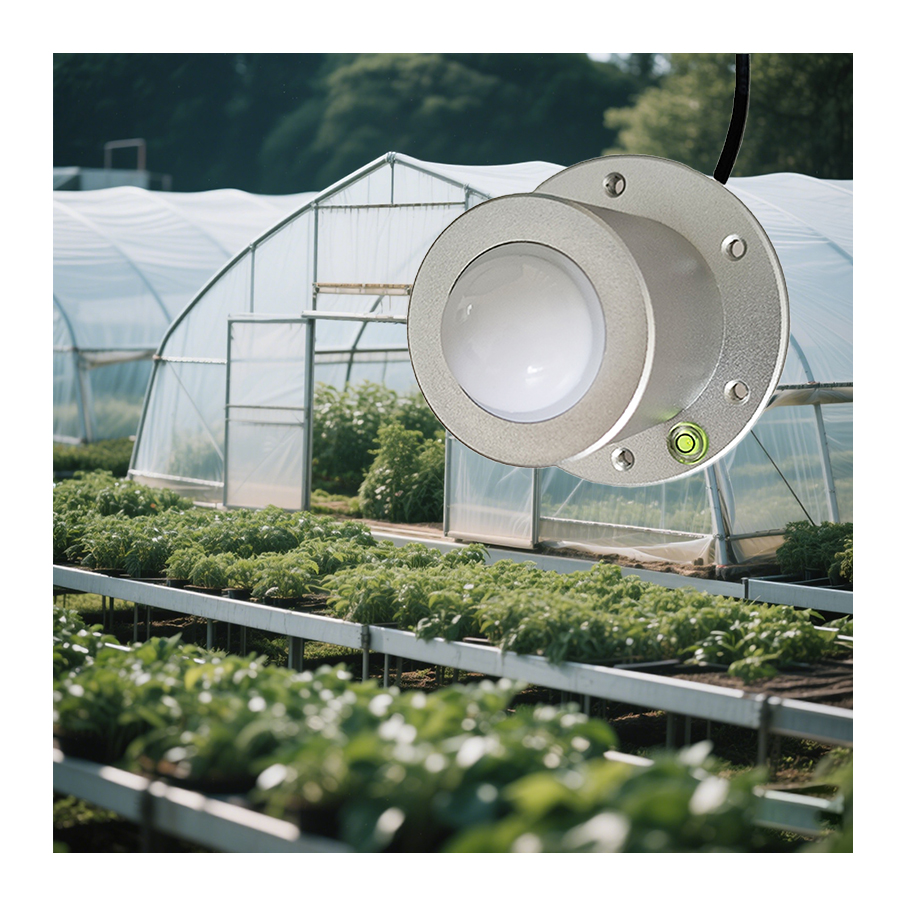With the development of science and technology and the continuous promotion of the concept of smart cities, light sensors, as an important environmental sensing device, are gradually becoming an important tool for automated control in various fields. This sensor can not only help us better manage energy use in daily life, but also play a key role in many fields such as agriculture, construction, and transportation. This article will explore the working principle, application field, and necessity of promotion of light sensors.
1. Working principle of light sensors
Light sensors provide real-time light data by detecting the light intensity in the environment. Its main working principle is to convert light energy into electrical signals using the photoelectric effect or the characteristics of photoresistors. The range of light intensity that the sensor can sense is generally measured in Lux, which makes it adaptable to applications under different lighting conditions.
There are many types of modern light sensors, including:
Photoelectric sensors: use the photoelectric effect to convert light signals into electrical signals.
Photoresistors: determine light intensity by measuring changes in resistance.
Digital light sensors: transmit light data more accurately through digital signal output.
2. Application fields of light sensors
Light sensors are widely used in many fields due to their high efficiency and accuracy. Here are some of the main application scenarios:
Smart lighting system
The application of light sensors in smart lighting systems can improve energy efficiency and reduce electricity costs. By monitoring the ambient light level in real time, the system can automatically adjust the brightness of indoor and outdoor lighting. For example, in public places, light sensors can ensure that lighting is turned on only when needed to avoid unnecessary waste.
Agriculture
In modern agriculture, light sensors are used to monitor light intensity to optimize plant growth conditions. In greenhouses or sheds, light sensors can be used to adjust the switch of artificial light sources in time to provide the best lighting environment, promote crop growth, and increase yields.
Building energy saving
The natural lighting design of buildings can be optimized by light sensors. When there is sufficient natural light, the system adjusts the indoor lighting to achieve energy saving. This not only reduces energy consumption, but also improves the comfort of living and office environments.
Smart transportation system
In smart transportation systems, light sensors can be used for automatic adjustment of traffic lights, adjusting the brightness of traffic lights according to changes in ambient light to ensure traffic safety. In addition, sensors can also be used to automatically adjust vehicle lighting to improve the safety of night driving.
Security monitoring
Light sensors can be used in conjunction with security monitoring systems. When the light level drops to a certain level, the system automatically turns on the surveillance camera to ensure safety. For example, at night or in low light conditions, ensure the effective operation of the surveillance camera.
3. The necessity of promoting light sensors
Energy conservation and emission reduction
In the context of global energy shortages and environmental pollution, the promotion of light sensors can effectively reduce energy consumption. The popularization of intelligent lighting and automatic adjustment systems can achieve energy conservation and emission reduction in daily life and industrial production, and help achieve sustainable development goals.
Improve production efficiency
In agriculture, construction, industry and other fields, the application of light sensors can improve the effective use of resources. This will directly promote the improvement of production efficiency, reduce operating costs, and bring better economic benefits to enterprises.
Adapt to the needs of smart cities
The construction of smart cities cannot be separated from advanced technical support. As an important part of smart life, light sensors can improve the intelligence level of urban infrastructure and improve the quality of life of citizens.
Improve safety
In the field of security, the application of light sensors can enhance the effectiveness of monitoring systems. Automatically adjust monitoring equipment when light changes, improve public safety, and protect people’s lives and property.
4. Conclusion
In short, as an efficient, safe and environmentally friendly solution, the promotion of light sensors is particularly important in all fields of today’s society. Through the reasonable application of light sensors, we can achieve energy saving, efficiency improvement, and improve the quality of life and work. To this end, enterprises, institutions and individuals should attach importance to the application of light sensors, seize the opportunities brought by scientific and technological progress, and jointly promote the future development of intelligence and greenness. With the continuous advancement of technology and the reduction of costs, light sensors will become more and more popular, bringing more convenience to our lives.
Let us join hands to welcome the intelligent era brought by light sensors!
Post time: Apr-17-2025


